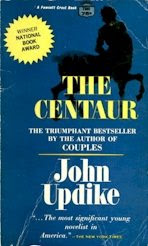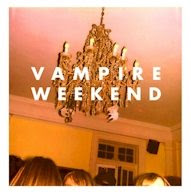
Tor hardcover - 340 pages
Copyright 2006
Rating: 4/10
(Not Bad, But Not Recommended)
Mini-review by Aaron Hughes
I didn't get around to doing a full review of Orson Scott Card's
Empire when it came out late in 2006, but in
my recent review of Ender in Exile, Card's latest novel, I mentioned in passing that I thought
Empire was marred by Card force-feeding the reader his political views. As someone who is generally a great admirer of Card's work, I wanted to explain this negative comment more fully.
Empire is a near-future thriller about the outbreak of civil war in the United States, a war fought not between geographic areas but rather along ideological lines. Special Ops Major Reuben "Rube" Malek and Captain Barholomew Coleman struggle to hold the country together through a crisis, including the assassination of the president and the invasion of Manhattan, precipitated by hatred between American conservatives and liberals. (The novel ties into a video game, but the only indication of this in the text are a few graphics-friendly elements such as the two-legged mechanized tanks that occupy New York; the story appears to be Card's creation.)
Empire is capably written and features engaging characters in an exciting story, punctuated by plot twists you will not see coming. Yet the book is a failure, because it is impossible to enjoy if you do not share Card's political views, and difficult to enjoy even if you do. The book is far too burdened with Card's contempt for modern liberals, especially the media and academics:
The media has forbidden us to remember the falling towers. They don't allow us to see the footage. It's like their slogan is, "Forget the Alamo." I'm tired of being obedient to their decision to keep us blind.
Either directly through the narration or indirectly through his mouthpiece Rube, Card continually expresses disdain for the Left:
Princeton University was just as Reuben expected it to be -- hostile to everything he valued, smug and superior and utterly closed-minded. In fact, exactly what they thought the military was.
Even though I agree with many of Card's political points, taken together they undercut the purported message of
Empire, that liberals and conservatives should stop viewing each other as the enemy and find common ground.
At times Card attempts to be even-handed, but he can't get his heart into it. So he shows an ultra-right general spouting pig-headed, homophobic rhetoric, but we soon learn he was only feigning bigotry. Card emphasizes that Rube's wife is a Democrat, but she never actually says anything that reflects a liberal viewpoint. (The closest she comes is to chastise Rube for denouncing left-wingers too harshly.)
It is all too obvious which characters' politics mirror Card's. The most telling giveaway is the novel's plot. At every turn, conservatives try to hold the country together while liberals gleefully help to break it apart. Two days after the assassination of the President by terrorists, a military force seizes Manhattan and slaughters the NYPD. Incredibly, Card shows American liberals
supporting these invaders, merely because they call themselves "progressives" and denounce the 2000 election. How could anyone who experienced 9/11 believe that would be the prevailing reaction?
Through the story of
Empire, Card is doing exactly what he claims to be counseling against: demonizing his political opposition. Card wrongly views the American Left as the enemy, nor does he understand his enemy very well.
 The Books of the Week are the first paperback printings of The Centaur and The Witches of Eastwick by John Updike (1932-2009). A couple weeks back, before being sidetracked by flu, strep, and other distractions, BOTW raised the question whether recently deceased award-winning author John Updike had ever dabbled in science fiction and fantasy. Regular readers of this column knew better than to doubt it.
The Books of the Week are the first paperback printings of The Centaur and The Witches of Eastwick by John Updike (1932-2009). A couple weeks back, before being sidetracked by flu, strep, and other distractions, BOTW raised the question whether recently deceased award-winning author John Updike had ever dabbled in science fiction and fantasy. Regular readers of this column knew better than to doubt it. While one may debate whether to call a book like The Centaur "fantasy," there is no doubt that the label applies to The Witches of Eastwick, in which three modern-day women develop magical powers with the help of a diabolical figure (delightfully played by Jack Nicholson in the film).
While one may debate whether to call a book like The Centaur "fantasy," there is no doubt that the label applies to The Witches of Eastwick, in which three modern-day women develop magical powers with the help of a diabolical figure (delightfully played by Jack Nicholson in the film).



